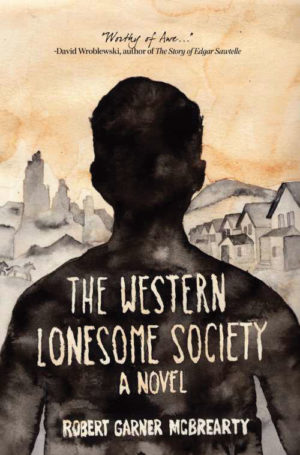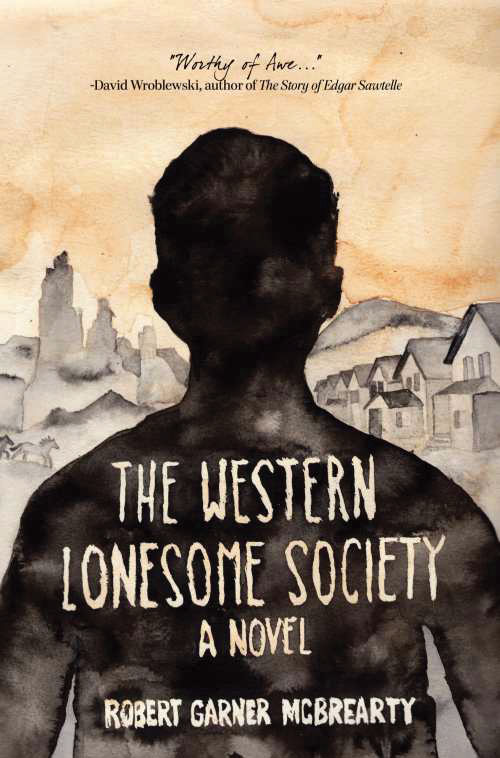 By Robert Garner McBrearty
By Robert Garner McBrearty
ISBN: 9781-942280-12-5
Conundrum Press: 2016
$14.99; 123pp.
Reviewed by Eduardo Rey Brummel
This isn’t your father’s Western novel. Time frames – past, more recent past, and what’s current – get sloshed together. Also, every so often an imagined psychologist appears, questioning and harassing our narrator, Jim O‘Brien, who’s also battling “president Jammer” and “the mad linguist.” It may be that O’Brien is really battling paranoid schizophrenia, thus giving us an untrustworthy narrator. Since there’s no way to tell fact from fiction, our best option is to buckle up for the ride.
And it is a good ride. The story tells of the two separate kidnappings which took place in O’Brien’s family: the 1870 kidnapping of his grandfather and great uncle, by Comanches; and the kidnapping of O’Brien and his brother and sister, by a man O’Brien calls, “Roughhound.” The story braids the telling of the two kidnappings with O’Brien’s current thoughts and actions.
The weaving of three distinct time periods, as perceived by a paranoid schizophrenic, is a huge and risky endeavor for a writer to undertake. One has to give kudos to McBrearty for taking such a risk, rather than playing it safe. In my view he doesn’t fully pull it off, but he comes close enough for his story to be thoroughly enjoyed.
However, one problem for me was McBrearty’s frequent use of rambling sentences – such as this one, at the very beginning of his book:
On a warm afternoon in summer, many years after his kidnapping, in the
makeshift room above his garage, in a modest, ramshackle suburban
neighborhood in a small city somewhere in the West, Jim stands at the
window, training a pair of binoculars on the neighborhood streets.
I prefer shorter sentences. One reason is that I tend to hold my breath until reaching the end of a sentence. Also, I can get lost midway through, having forgotten what the sentence is about. As his story progressed, either McBrearty’s sentences became more compact, or I became more used, and/or oblivious, to his continued occasional ramblings.
In the publisher’s back-cover synopsis, McBrearty’s writing is compared to Cormac McCarthy’s and Kent Haruf’s, two writers rarely mentioned in the same sentence. While I found few similarities to either author, the novel is humorous and fun, like the writings of Christopher Moore, the other author to whom they compare McBrearty.
Again, I enjoyed this novel. McBrearty has published three other works, and one of his stories was included in a Pushcart Prize collection. I’m hankering to seek these other works out, in order to read more of his stories. This is one of the finest joys of reading: coming across an unknown author, then to be frothing at the mouth to read more of what they’ve written.
One more good thing: Conundrum Press is based in Golden. Buying this book, and others from their catalogue, will support a small, independent press, and also allow you another opportunity to “Always Buy Colorado.”
Eduardo Rey Brummel has lived in the West all his life, yet he still doesn’t own a cowboy hat, boots, Wranglers, or a pick-up.



